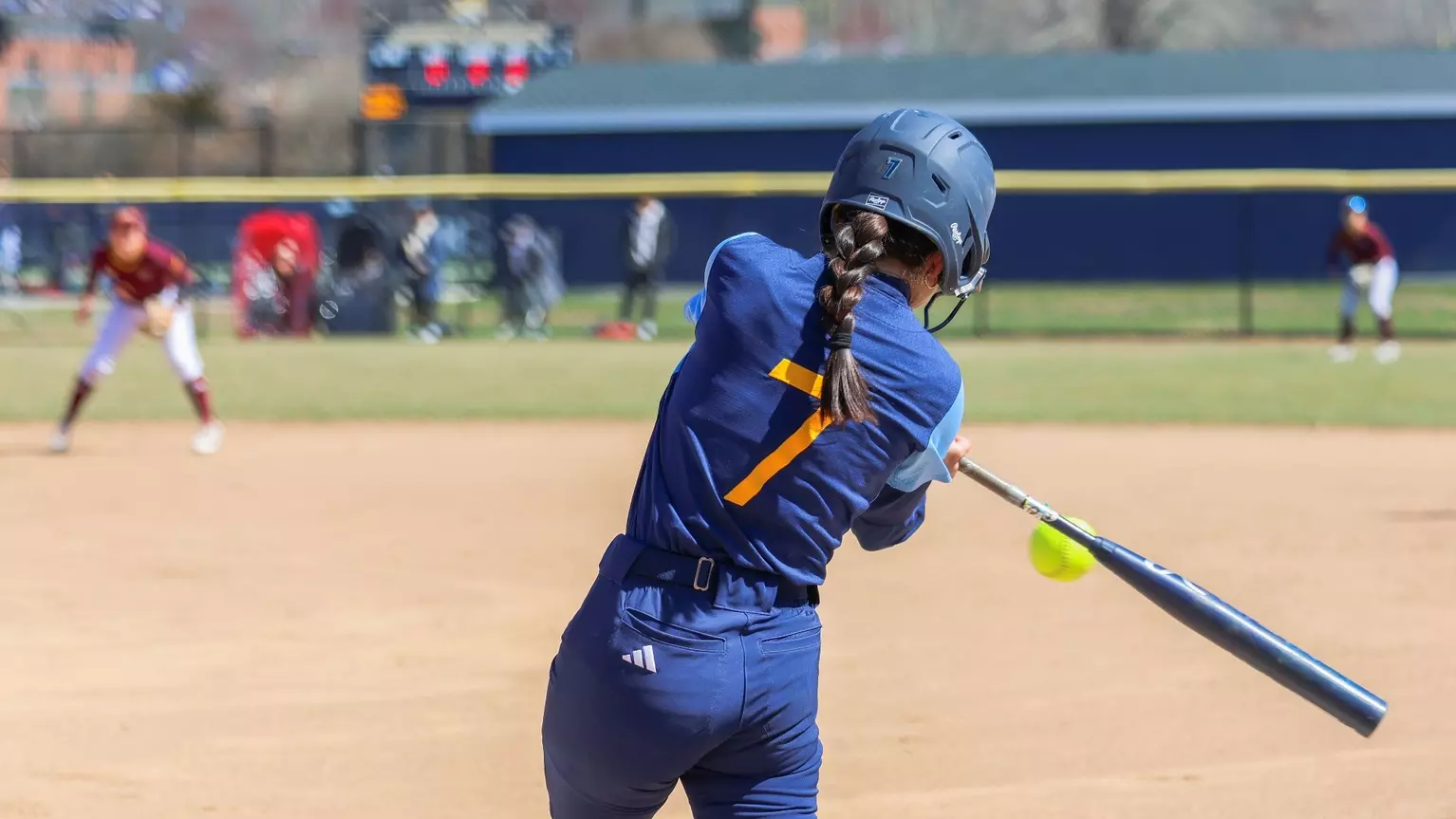By: School of Communications
The Quinnipiac softball team opened up MAAC play last weekend against Iona after a lengthy 17-game road stretch that took them through Tennessee, Florida, Delaware and Missouri.
The Bobcats went 5-12 during that stretch. Junior Sofia Vega was standout, recording 12 hits and 14 runs, with 10 of her hits coming in the last 17 games. Mary Fogg also impressed, tallying seven hits and 19 runs. She recorded at least one hit in 13 games and had an eight-game hitting streak during the road trip.
Now, QU Sports Page’s Jake Baskin, Kaitlyn Grady and Khalise Harris break down the good, the bad and the ugly from the first half of the Bobcats’ 2025 season.
The Good
The Bobcats faced powerhouse programs like Illinois, Columbia, UCF and Syracuse — teams many mid-major programs shy away from. But instead of backing down, Quinnipiac embraced the challenge, proving it could hold its own against top-tier competition.
Columbia entered the season ranked 5th in the ivy league preseason poll, while Princeton was naked 1st in the game poll as they are now 124th nationally with an 8-12 record. Missouri, sitting at 18-15, has defeated teams like Duke and Clemson and is ranked 29th. Meanwhile, Syracuse is ranked 82nd.
While many MAAC teams haven’t faced the same level of non-conference competition, Quinnipiac has been tested early against several high-caliber programs. That experience could prove valuable as they enter conference play. The team has shown flashes of resilience, keeping games competitive against strong opponents.
Offensively, Quinnipiac has recorded 42 RBIs during the stretch, with a season-high 14 against Columbia, eight against Morgan State, and six against Kansas City. Against Missouri, the Bobcats struck out 11 batters. If Quinnipiac can continue building on it’s offensive production, the team could be in a strong position heading into conference play.
“Now we can compete with anybody,” head coach Hillary Smith said, highlighting a key positive from the team’s challenging early schedule. “We could play with the big dogs, we can hit some of the best pitchers in the country-we know that.”
– Harris
The Bad
The Bobcats have struggled at the plate early this season. Through 20 games, they have hit .200 or fewer in 10 of those games, all of which resulted in a Quinnipiac loss. The Bobcats’ team batting average sits at .224, which ranks 283rd out of 300 in the NCAA.
Quinnipiac has not been getting enough runs across the plate to win. In 15 out of their 20 games the Bobcats failed to score more than three runs, giving their pitching staff very little room for error.
There have been eight games where Quinnipiac has held its opponents to three or fewer runs. However, it ended up losing half of those games. The Bobcats are not capitalizing when they are getting good pitching because they are not scoring enough runs to win those games. Why? They lack power. The Bobcats have only hit two home runs this season. They also are struggling to get on base consistently, there have been 12 games where they have drawn only 2 or fewer walks in the game.
There is a way that Quinnipiac can use its offense to help get more wins in conference play. The Bobcats need to elevate their offense a little more so that their advantage so that good starting pitching is not negated by lack of runs scored.They can do this by getting on base more consistently, getting ahead in counts and drawing more walks so they have more opportunities for RBI’s and having runners in scoring position. There were three games this season where the Bobcats accounted for a combined 28 RBI’s, however in their other 17 they only had a combined 21 RBI’s. Getting runners in scoring position and bringing them home consistently is a huge point of emphasis. They can accomplish this by playing small ball with singles and bunting and moving runners over because they lack the home run power.
The Bobcats key to success in conference play will be scoring more than 4 runs per game, if they can do that they should be able to rack up some more wins.
– Grady
The Ugly
The Bobcats’ defense was inconsistent throughout their road trip. While the numbers do not necessarily put their performance in a bad light — Quinnipiac’s .953 fielding percentage is 197th out of 300 teams and they have only committed 28 total errors on the season — the timing of the errors has been particularly costly.
In the final four games of the team’s Orlando road trip, the team committed seven errors. Both of Pittsburgh’s runs in a 2-1 win over Quinnipiac on Feb. 22 were unearned, while Columbia scored all 10 of its runs the following day immediately after Bobcat miscues. Quinnipiac recorded four errors in a loss to Princeton on March 14, and seven in a home loss to Iona on March 23.
To this point, Quinnipiac is 1-6 when it has committed more than one error. As they move into conference play, the Bobcats can be satisfied that they’ve received some strong pitching and played competitive games against bigger schools. But if they are to put themselves in a position to win in the MAAC, they will need to make timely defensive plays and shut down opponents’ rallies.
– Baskin
